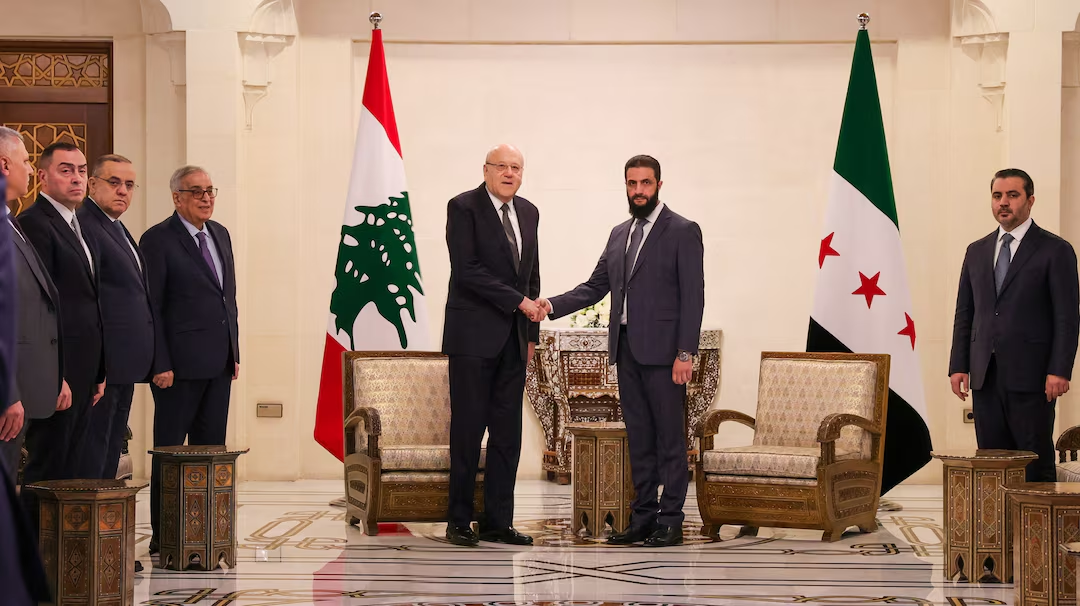Lebanon's Prime Minister Mikati Meets Syrian Leader Al-Sharaa to Discuss Border and Refugee Crisis
Lebanon's caretaker Prime Minister Najib Mikati made his first visit to Syria in 15 years. He participated in a joint press conference in Damascus with Syria's de facto leader Ahmed al-Sharaa. Their discussions covered border issues, smuggling, and Lebanese deposits in Syrian banks.
Lebanon's Prime Minister Mikati Meets Syrian Leader Al-Sharaa to Discuss Border and Refugee Crisis
Lebanon's Prime Minister Mikati Meets Syrian Leader Al-Sharaa to Discuss Border and Refugee Crisis
Lebanon's caretaker Prime Minister Najib Mikati made his first visit to Syria in 15 years. He participated in a joint press conference in Damascus with Syria's de facto leader Ahmed al-Sharaa. Their discussions covered border issues, smuggling, and Lebanese deposits in Syrian banks.
Mikati stated that Lebanon and Syria will work together to secure their land borders and delineate both land and sea boundaries.
Al-Sharaa expressed hopes for establishing “long-term strategic relations,” particularly following the Syrian presidential election. He added, “We and Lebanon have significant mutual interests.”
Both sides agreed to form committees to address these issues and provide support. Al Jazeera's correspondent Hamza Mohamed, reporting from Damascus, noted that the two leaders emphasized the importance of preventing smuggling between the two countries.
"Smugglers used to send weapons and drugs from Syria into Lebanon, which was a significant concern for the Lebanese leader," Mohamed reported.
Lebanon’s eastern border is known for smuggling activities. During Syria's civil war, Lebanese armed group Hezbollah supported Assad. However, the group has weakened following a conflict with Israel, resulting in the death of its long-time leader and diminishing its firepower, enabling Syrian rebels to capture Damascus last month.
Mohamed also reported that Al-Sharaa stressed the importance of resolving the Syrian refugee issue, which poses a heavy burden on Lebanon’s struggling economy. Lebanon is estimated to host about 1.5 million Syrian refugees, most of whom fled the civil war that began in 2011.
Lebanon's newly elected President Joseph Aoun stated on Thursday that there is a “historic opportunity for serious and equitable dialogue” with Syria.
During the Assad family's five-decade rule, Syria exerted significant influence over Lebanon, maintaining a military presence for 29 years. Syria withdrew its troops in 2005 under international pressure following the assassination of former Lebanese Prime Minister Rafik Hariri.










